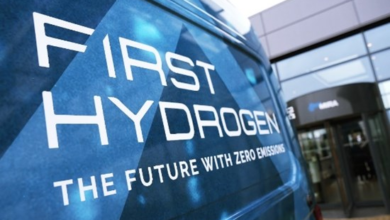South Korea uses BAM’s digital hydrogen filling station

The Bundesanstalt für Materialforschung und -prüfung (BAM) is setting up a digitally networked research filling station for hydrogen.
The aim is to comprehensively test important safety aspects of this technology and to digitalise processes. As part of a research cooperation, partner institutions from South Korea will also use BAM’s hydrogen filling station for this purpose.
Green hydrogen is aimed at decarbonising heavy and long-distance transport and one day perhaps also air and sea transport. BAM, whose mandate includes ensuring safety in technology and chemistry, is building a digitally networked research filling station for hydrogen at its test site in Brandenburg, which is unique in Germany.
The platform will be used to comprehensively test central aspects of the operational monitoring and safety of hydrogen filling stations and to digitalise essential processes in order to increase the overall economic efficiency, reliability and availability of hydrogen filling stations. BAM’s research filling station is a pilot project of the initiative Quality Infrastructure Digital (QI-Digital), with which BAM and its German partner institutions plan to pave the way for digitally supported and integrated quality assurance.
Under this cooperation agreement, four partner institutions from South Korea will also use the digitally networked filling station, which is scheduled to go into operation in spring 2024. The contract was signed last week at BAM in Berlin. The cooperation is funded by the South Korean Ministry of Trade, Industry and Energy (MOTIE).
The focus is on testing a new safety management system for hydrogen filling stations that was developed in South Korea. It can evaluate operational safety data collected via sensors online and monitor the behaviour of all components in real-time. In an emergency or in critical operating situations, the system can also automatically issue instructions for guidance to ensure user safety.
“By pooling our know-how at an early stage, we can help accelerate the implementation of safety systems for hydrogen filling stations and thus speed up the market launch of green hydrogen,” says Bin Wang.
Two South Korean companies are involved in the project, as well as the state-run Korea Electronics Technology Institute and the Korea Gas Safety Corporation, which is subordinate to the South Korean Ministry of Trade, Industry and Energy.
